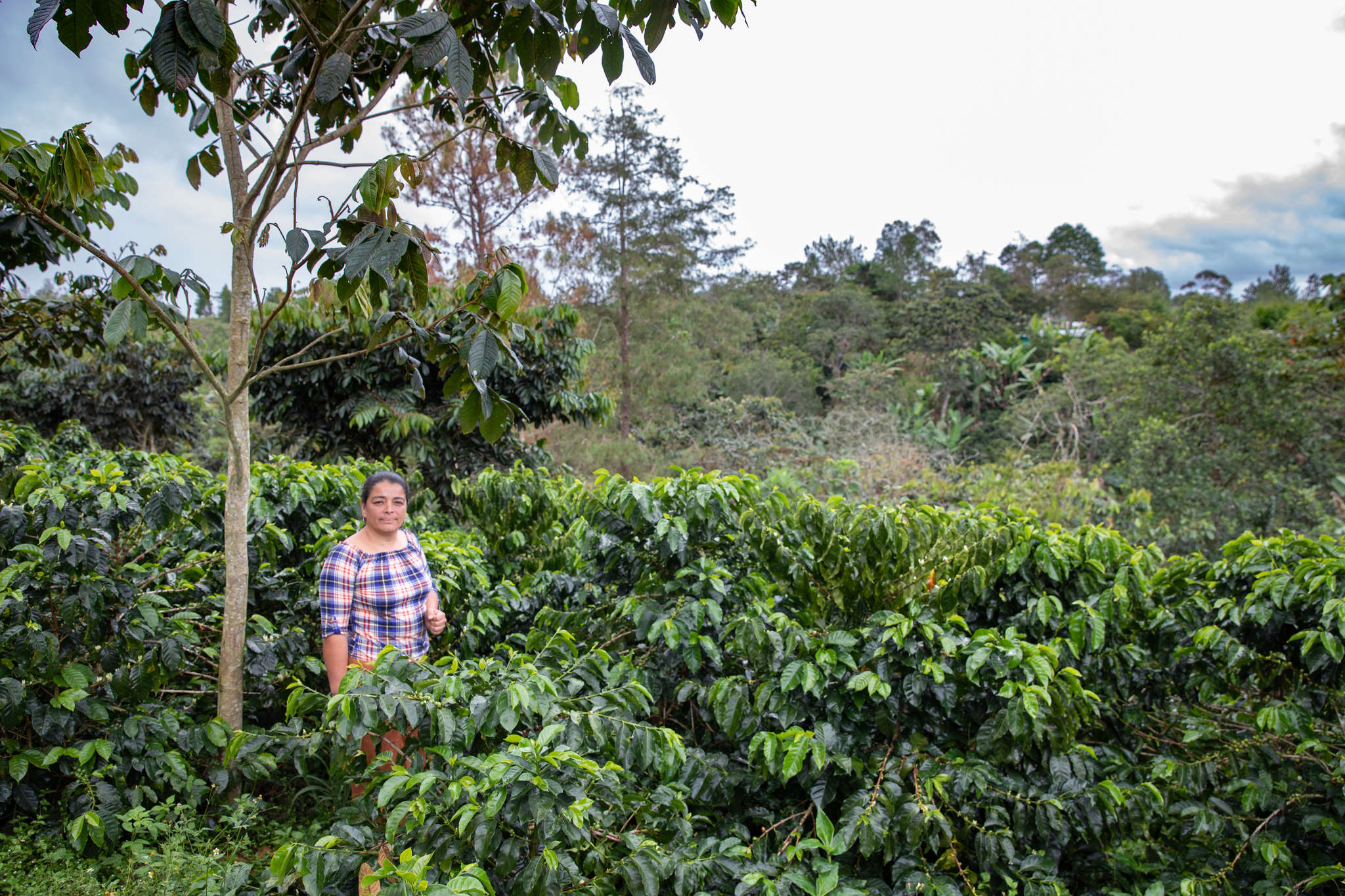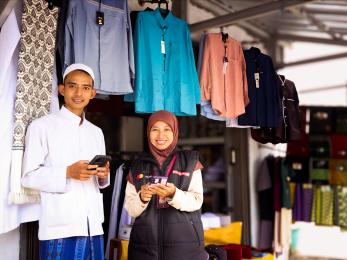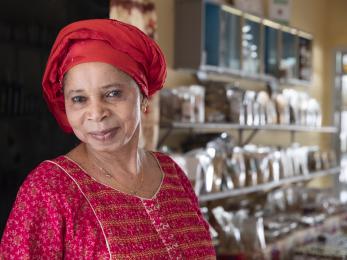A new life starts with a small loan
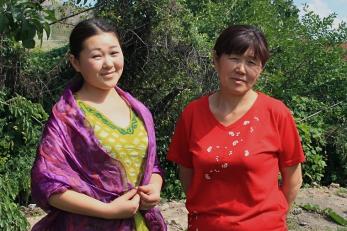
Nine years ago Anarkan Mambetova was barely able to feed her five children with her schoolteacher’s salary in rural Kyrgyzstan. Today she owns a thriving handicraft business with plans to expand.
Anarkan is a living, breathing microfinance success story. Her traditional handmade silk and felt scarves, bags, dresses and necklaces have won numerous awards, and have allowed her to send her children to university. In a country with rising school fees and high dropout rates, it’s a big deal.
Her experience is just one of a growing number of successes in Kyrgyzstan, thanks to the efforts of Kompanion Financial Group, which Mercy Corps founded in 2004.
In a country where over 38 percent of the population lives below the national poverty line, microloans are crucial to help small business owners survive in Kyrgyzstan's fickle market. That's why we consolidated five regional microcredit organizations to form Kompanion, which now operates all over the country. In fact, it is now the country's largest financial institution, serving over 107,500 Kyrgyz clients.
Turning passion into profits
We asked Anarkan how her Kompanion loans have helped her develop her business, but we ended up learning about a woman whose strength and passion for her trade have sparked a growing appreciation for Kyrgyz tradition within the Central Asian and European fashion industries.
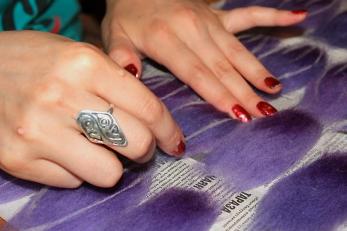
Before Kyrgyzstan’s independence from the Soviet Union in 1991, Anarkan graduated with a university certification in education. She worked hard as a schoolteacher in a rural village in the east of the country, but her fixed salary was far too low to provide for her five children.
Looking for new opportunities, Anarkan and her sister participated in a small business skills training in 2005. That same year she moved her family to capital of Bishkek, where she planned to produce and sell her handmade products.
Her road to success began when she heard about Kompanion microloans later that year.
Anarkan’s first Kompanion loan was a modest 20,000 som (about $400 USD), just enough to kick-start her business and continue to provide for her family. Since borrowing that initial sum — and repaying it — she has become a regular Kompanion client.
A family's big dreams
In their small manufacturing space in the lush foothills of the Tien Shan mountain range, Anarkan and her daughters' hands were busy fluffing and layering wool as they spoke with us. The production of felt is a labor-intensive process, but worth it, in Anarkan's opinion.
“Handmade things have a special energy because of the labor that is put into them," she said. "I’m glad that there is a trend toward more traditional handicrafts and less of a demand for synthetic factory-made things. Handmade items are much more pleasant to wear — they are special."
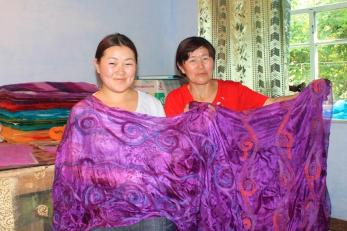
With the help of her two youngest daughters, Janyl and Gulaym, Anarkan continues to reach out to customers beyond Bishkek with the funds provided by Kompanion. Her business is now completely self-sufficient, but she continues to take loans from Kompanion to show her products in folk-art exhibitions around the world. In Moscow, her collection won second place in an overall competition. Her ongoing success has meant she can afford to send her three older daughters to university, an expensive option not easily available to many women in Kyrgyzstan.
And her success is being passed down: Janyl, 16, hopes to follow in her mother’s footsteps and study traditional Kyrgyz handicraft design and business when she attends university.
“I’m proud of my daughters,” said Anarkan, when asked about what she was most proud of since starting her business. “This kind of labor grows persistence and dignity inside of a person, and it eliminates bad qualities. My children are a reflection of this. They are leaders in school, are polite and have good values, which sets them apart from many others.”
It's obviously a quality they learned from their mother, who has set herself apart as an example of what opportunity looks like.
